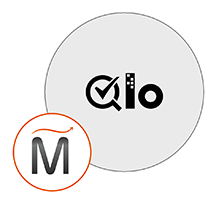Qloapps


Please feel free to contact us
Go
Owner can synchronize their rooms, rates and availability on single platform. It is a simple, elegant and astonishing booking system that help end users to book multiple rooms from multiple hotels in single cart.
In today’s world online business is very important to earn more profit. Qloapps brings you the most incredible hotel booking system which will help you to get infinite booking inspite of the season or other factors involved in offline booking.
Miri Infotech is launching a product which will configure and publish CMS Made Simple, a Content Management System which is embedded pre-configured tool with Qloapps and Prestashop ready-to-launch AMI on Amazon EC2.
You can subscribe Qloapps to an AWS Marketplace product and launch an instance from the Qloapps product’s AMI using the Amazon EC2 launch wizard.
Open the URL: http://<instance ip address>/main.php
<instance ip address> : IP address of the running EC2 instance.
Step 1: Fill the primary authentication form with the following details –
Username: Admin
Password: <instanceID>
Step 2: select your language and click next.
Step 3: accept the license and click next.
Step 4: enter the details of your shop and click next.
Step 5: enter the following details:
Database name: qlodb
Database login: qlo
Database password: <instanceID>
Test your database connection and click next.
Step 6: click on discover your store to see the website.
Step 7: For admin panel click on “manage your store”.
Step 8: For security reason you have to delete the install folder from the root directory. For this SSH into the instance using putty and run the following command:
sudo rm -fr /var/www/html/hotelcommerce/install
Step 9: click the link shown in step 7 on the screen again. And login to your admin account.
All your queries are important to us. Please feel free to connect.
24X7 support provided for all the customers.
We are happy to help you.
Submit your Query: https://miritech.com/contact-us/
Contact Numbers:
Contact E-mail:
Instances without public IP addresses can access the Internet in one of two ways:
You have complete control over the visibility of your systems. The Amazon EC2 security systems allow you to place your running instances into arbitrary groups of your choice. Using the web services interface, you can then specify which groups may communicate with which other groups, and also which IP subnets on the Internet may talk to which groups. This allows you to control access to your instances in our highly dynamic environment. Of course, you should also secure your instance as you would any other server.
Amazon EC2 security groups can be used to help secure instances within an Amazon VPC. Security groups in a VPC enable you to specify both inbound and outbound network traffic that is allowed to or from each Amazon EC2 instance. Traffic which is not explicitly allowed to or from an instance is automatically denied.
In addition to security groups, network traffic entering and exiting each subnet can be allowed or denied via network Access Control Lists (ACLs).
Amazon S3 provides a simple web service interface that you can use to store and retrieve any amount of data, at any time, from anywhere on the web. Using this web service, you can easily build applications that make use of Internet storage. Since Amazon S3 is highly scalable and you only pay for what you use, you can start small and grow your application as you wish, with no compromise on performance or reliability.
Amazon S3 is also designed to be highly flexible. Store any type and amount of data that you want; read the same piece of data a million times or only for emergency disaster recovery; build a simple FTP application, or a sophisticated web application such as the Amazon.com retail web site. Amazon S3 frees developers to focus on innovation instead of figuring out how to store their data
Amazon RDS manages the work involved in setting up a relational database: from provisioning the infrastructure capacity you request to installing the database software. Once your database is up and running, Amazon RDS automates common administrative tasks such as performing backups and patching the software that powers your database. With optional Multi-AZ deployments, Amazon RDS also manages synchronous data replication across Availability Zones with automatic failover.
Since Amazon RDS provides native database access, you interact with the relational database software as you normally would. This means you’re still responsible for managing the database settings that are specific to your application. You’ll need to build the relational schema that best fits your use case and are responsible for any performance tuning to optimize your database for your application’s workflow.
When a minor version of a database engine is deprecated in Amazon RDS, we will provide a three (3) month period after the announcement before beginning automatic upgrades. At the end of the this period, all instances still running the deprecated minor version will be scheduled for automatic upgrade to the latest supported minor version during their scheduled maintenance windows.
When a major version of database engine is deprecated in Amazon RDS, we will provide a minimum six (6) month period after the announcement of a deprecation for you to initiate an upgrade to a supported major version. At the end of this period, an automatic upgrade to the next major version will be applied to any instances still running the deprecated version during their scheduled maintenance windows.
Once a major or minor database engine version is no longer supported in Amazon RDS, any DB instance restored from a DB snapshot created with the unsupported version will automatically and immediately be upgraded to a currently supported version.
Qlo help you to synchronize your rooms, rates and availability of rooms to the users on single platform
QLO booking system is one place for managing all your online and offline booking.
With the help of Qlo system customers can book rooms by paying some amount or you can say doing advance payment
 Qloapps
Qloapps  php
php  apache
apache  mysql
mysql  linux
linux